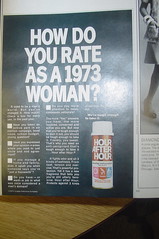Introduction, by Clancy Ratliff
For a long time, I've been reading birth stories, both online and in print. I was enchanted with Anita Diamant's The Red Tent, especially the birth of Leah's first child, Reuben; Leah gives birth roaring, standing up, with women all around her supporting her legs, not letting her fall. Anthropologist Robbie Davis-Floyd (1998) interweaves her birth story with reflections on reproductive technologies and the "cyborgification of birth." The birth story has become more significant in recent years, with feminism's advocacy on behalf of the birthing woman. A common argument is that as reproductive technologies have gotten more sophisticated -- and, as some would argue, more invasive -- the woman's control over her own birthing experience has eroded. The laboring body is pathologized, "out of control," something that must be "managed" (See Schuster). In response to the "medical model" of birth, many women who have the financial resources to do so have sought the services of midwives.
In putting together these essays, I had considered breaking them up into sections, with stories of c-sections, drug-free births, etc., but I decided against it. To represent these stories in categories according to the presence or absence of medical technology simply repeats the erasure of the woman from the birth. It insultingly reduces the richness of these stories to what is really ancillary. I thought about the reasons I read and appreciate birth stories: the eloquence, the humor, the visceral honesty, the bravery in the face of immense pain, the powerful emotion. The choral similarities (the "ring of fire," for example). The fact that they are passionately feminist stories. The fact that these women wrote it down. So I decided to include the titles, authors' names, and a snippet of each story that will make you see why I enjoyed reading it and want to read it yourself.
Birthing Arden, by Jodi Egerton
For a long time in the middle of active labor, I was in a wild, amazing, euphoric, ecstatic high. In between contractions I'd remark on the beautiful music playing (Lanell had these lovely soothing cds with her), how much I loved turkey sandwiches, how delicious that massage lotion smelled...I looked up at Owen and Lanell between one contraction and just gushed 'you both look soooo pretty!'
Anya's Birth Story, by Sarah
This entire pregnancy, I’ve been nursing a fantasy of giving birth in the middle of a snowstorm with the fire roaring in the wood burning stove.
NikkiZ's Birth Story: Attack of the Giant Uterus, by Miss Zoot
Dr. SoNice was telling me that he was drawing a line for my incision. The weird doctor tried to joke and say 'He'll initial it too!' but Dr. SoNice immediately said, 'No I Won't.' Evidently Dr. SoNice is of the opinion that during an emergency surgery, joking is NOT the best way to console the patient. And in reality? I agreed.
A Labor Story, by Heather Armstrong (Dooce)
I order the Pregnant Pizza which really isn’t a pizza but a 144 square inch orgasm of garlic.
It's Jackson's first birthday today. Woo! by Fussy
5:40 p.m. Jack whips up a delightful little creamy pasta vegetable dish. I take one look at it and tell him there's no way in hell I'm going to eat that. He goes back to the kitchen and blends a bunch of fruit and dairy products and calls it a smoothie. I have a sip and push it away. Jack sits next to me and puts his arm around me. I tell him to quit looking at me.
Birth Story 4.0, by Mara
The baby's head was not coming down straight to apply any pressure to my cervix, so she manipulated a bit so it would, and recommended walking, and if contractions started up again, doing all we could to intensify the contractions, not backing down or seeking comfort. Which seemed like a fine idea, except that there were no contractions. So when she left, Raven resumed some work phone calls, I loaded Søren in the stroller and went for a walk. And within half a block found my knuckles were white on the stroller.
Duncan's birth story, by Silandara
I ended up on my back, with the nurse holding one leg, Kevin holding the other, I think. I had to grab onto my thighs and curl up my chin and bear down with each contraction.
Birth Story, Part One and Part Deux, by Tracitalynne.
At one point she was, uh, poised at the opening, and it felt like the world’s biggest poop moved forward a bit.
Ainsley's Birth Story, by Mommy with some help from Daddy
At one point, I apparently asked them to just 'suck the baby out' of me, and I also sassed Alison when she asked for 'one more push' - 'I already DID one more!'
Birth Story, by jmoon
Tom later equated my feelings to having jumped off a cliff, and knowing you were going to hit the ground, but being unable to stop it. This analogy seems very apt.
My First Baby, by Strange Quark
I pushed for 2.5 hours and finally Jasper was born. His hand was on top of his head, and so his head and body came out with one last exhilarating push. Just like superman.
Baby Born, by Fabmujer
For some reason part of a Cesarean birth is being strapped like Jesus...arms and legs taped down to a bed with arm rests which resemble a cross.
My birth story...may be sad to read, by Sabra Girl
Eventually after 2 other dopplers, 2 ultrasounds, a fetal scalp heart monitor, and my dr and midwife checking everything, they told us they couldn't find a heartbeat.
The birth story, by llyncilla
I’ve learned what not to do, what to do differently next time, and I just need expiation. I have a few demons that need two dimensional-izing, to be pulled apart and rewoven into a quiet little story, a story like a grave.
And So I Choose, by Allison Crews
There was no way I could handle the pain and horror of childbirth alone, in my bedroom and sanctuary, as I wished to do. I needed a man, trained to care for women, (who are inherently capable of caring for themselves), to see me through my labor. I needed to be monitored, strapped to a bed, cleaned from the inside, shaven smooth and knocked out cold. I was a little girl and delivering babies is a man's job.
Birth Story--Jiro Coltrane, by Stacey Greenberg
'Fill the birthing tub!' I commanded.
Baby Moon Essays: 1 : The Birth, by Lone Star Ma
Then I was pushing that wet, fat baby out…which didn’t burn at all, it was literally the best sensation of my entire life!
*NOTE: I know it's a little weird to have "Introduction, by Clancy Ratliff" at the beginning, but I'm thinking of this as not just a link-roundup type of post, but more formal, like an anthology. I hope to see others start creating these, perhaps as online course packs for classes, but it might be a neat assignment for students to do too. I see this as different from a carnival in that it's a one-time thing and not a serial; plus, there's my introduction at the beginning that explains my reasons for doing this project.






